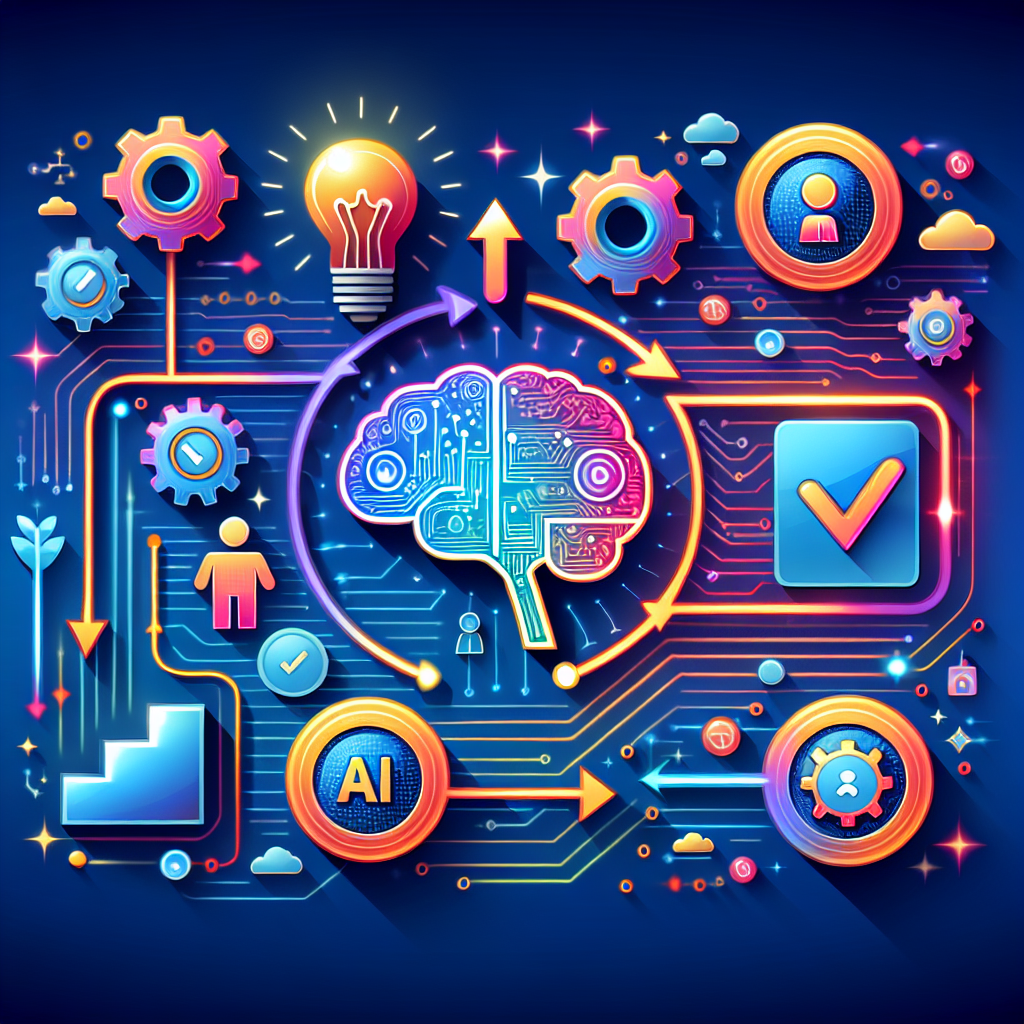The Impact of AI on Customer Journey Optimization
In today’s fast-paced digital world, customer journey optimization has become a key focus for businesses looking to improve customer experience and drive growth. As more and more customers interact with businesses through various touchpoints, it has become crucial for companies to understand and optimize the entire customer journey to ensure a seamless and personalized experience.
Artificial intelligence (AI) has emerged as a powerful tool in helping businesses optimize the customer journey. By leveraging AI technologies such as machine learning, natural language processing, and predictive analytics, businesses can gain valuable insights into customer behavior, preferences, and trends. This enables them to create more personalized and targeted marketing campaigns, improve customer service, and ultimately drive customer satisfaction and loyalty.
One of the key ways in which AI impacts customer journey optimization is through the analysis of customer data. AI algorithms can process vast amounts of data in real-time, allowing businesses to gain a deeper understanding of customer behavior and preferences. By analyzing data from various touchpoints such as websites, social media, and customer interactions, businesses can identify patterns, trends, and opportunities for improvement in the customer journey.
AI-powered analytics also enable businesses to predict customer behavior and preferences, allowing them to anticipate customer needs and tailor their marketing strategies accordingly. For example, AI can analyze past purchase behavior to predict future purchasing patterns, enabling businesses to send personalized offers and recommendations to customers at the right time. This not only improves customer satisfaction but also increases the likelihood of conversion and repeat business.
Another way in which AI impacts customer journey optimization is through the automation of customer interactions. Chatbots powered by AI technologies can handle customer queries, provide personalized recommendations, and even process transactions in real-time. This not only improves the efficiency of customer service but also provides a seamless and convenient experience for customers.
AI-powered chatbots can also gather valuable data from customer interactions, enabling businesses to gain insights into customer preferences and pain points. This data can then be used to continuously optimize the customer journey, ensuring that customers receive relevant and timely information throughout their interactions with the business.
Furthermore, AI technologies can also be used to personalize marketing campaigns and content based on customer preferences and behavior. By analyzing customer data, businesses can create targeted marketing messages that resonate with individual customers, increasing the likelihood of engagement and conversion. This level of personalization not only improves the overall customer experience but also helps businesses stand out in a crowded marketplace.
In addition to improving customer experience, AI can also help businesses optimize their internal processes and operations. By automating repetitive tasks and streamlining workflows, businesses can free up time and resources to focus on more strategic initiatives. This not only improves efficiency and productivity but also enables businesses to better serve their customers and drive growth.
Overall, the impact of AI on customer journey optimization is significant. By leveraging AI technologies to analyze data, predict customer behavior, automate interactions, and personalize marketing campaigns, businesses can create a seamless and personalized customer journey that drives satisfaction and loyalty. As AI continues to evolve and improve, businesses that embrace these technologies will have a competitive advantage in the digital landscape.
FAQs
Q: How can businesses get started with AI for customer journey optimization?
A: Businesses can start by identifying their key customer touchpoints and collecting data from these interactions. By analyzing this data, businesses can gain insights into customer behavior and preferences, which can then be used to optimize the customer journey.
Q: What are some common challenges businesses face when implementing AI for customer journey optimization?
A: Some common challenges include data privacy concerns, the need for skilled data scientists and AI experts, and the integration of AI technologies with existing systems and processes. However, with proper planning and investment, businesses can overcome these challenges and reap the benefits of AI for customer journey optimization.
Q: How can AI help businesses improve customer service?
A: AI-powered chatbots can handle customer queries in real-time, providing personalized recommendations and assistance. By automating customer interactions, businesses can improve the efficiency of customer service and provide a seamless experience for customers.
Q: What are some best practices for leveraging AI for customer journey optimization?
A: Some best practices include collecting and analyzing customer data from various touchpoints, using predictive analytics to anticipate customer behavior, personalizing marketing campaigns based on customer preferences, and continuously optimizing the customer journey based on insights gained from AI technologies.

